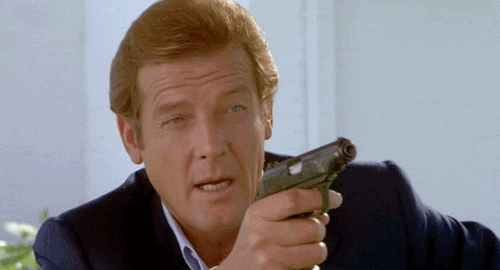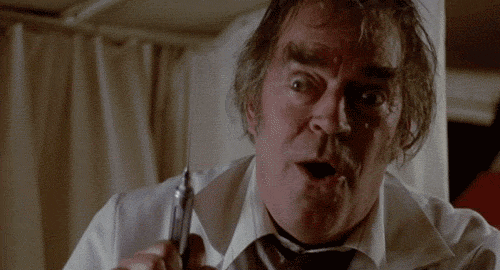Welcome to Retro Television Reviews, a feature where we review some of our favorite and least favorite shows of the past! On Thursdays, I will be reviewing Changing Patterns, which aired on CBS in 1987. The entire show is currently streaming on YouTube!
This week, Valerie Perrine and Brenda Vaccaro are changing patterns!
Episode 1.1 “Pilot”
(Dir by Linda Day, originally aired on June 26th, 1987)
Molly (Oscar nominee Valerie Perrine) and Maxine (Oscar nominee Brenda Vacarro) are two housewives who lives in the suburbs. Molly’s husband (Alex Rocco) is an old friend of Maxine’s husband (Robert S. Woods). Maxine’s husband makes smoothies in the blender. Molly’s husband likes to play golf. They made a fortune in the tire business but now, they’re both retired and ready to support Maxine and Molly’s dream. What a wacky group of neighbors.
Molly and Maxine are trying to break into the fashion industry. Since this the 80s, all of their designs feature shoulder pads and none of them look like they would, in any way, flatter the figure of anyone under the age of 57. Despite having never sold a design and presumably having never made any money from their career, Molly and Maxine have a store in the mall and they’re able to employ a professional cutter (Eric Christmas).
When Steve Ballinger (George DelHoyo), a buyer from Sacks, steps into their store, he’s impressed with their work. He wants to buy some of their hideous designs. But — uh oh! — he also mentions that he would like to set Maxine up with a single friend of his. Molly and Maxine assume that Steve is talking about himself and, eager to make a sale, they don’t reveal that Maxine is married.
Molly and Maxine lie to their husbands and then meet Steve for dinner. Steve shows up with his wife! And his single friend, Jim (Hugh Maguire). When Molly and Maxine thought that Steve was interested in Maxine himself, they thought he was being sleazy. But when they discover that Steve just wants to Maxine to hook up with his friend, they think it’s charming. Either way, it doesn’t really seem that professional on Steve’s part. I, honestly, was expecting Steve to be revealed to be a big liar. I mean, do buyers of major stores really walk around the strip mall? Not to mention that none of Molly and Maxine’s designs were actually any good or, in any way, unique. Steve might soon be out of a job.
Anyway, Maxine reveals that she is married and everyone has a good laugh over the misunderstanding. Then Molly and Maxine go home and have a second dinner with their husbands, who are both amazingly forgiving of the whole lying thing. I mean, Alex Rocco was Moe Greene. There’s just something weird about seeing him play such a wimpy character.
You can probably guess that this was the only episode of Changing Patterns. The show had a number of problems, including a laugh track that went off even when nothing funny was happening. The main problem, though, is that Molly and Maxine were pretty much interchangeable. They both had the same personality, the same outlook, the same ambitions, and the same sense of humor. That might work for a friendship but, for a television show, it means that there’s not enough conflict to keep things interesting. For Changing Patterns to succeed, it would have needed to change its own patterns.














